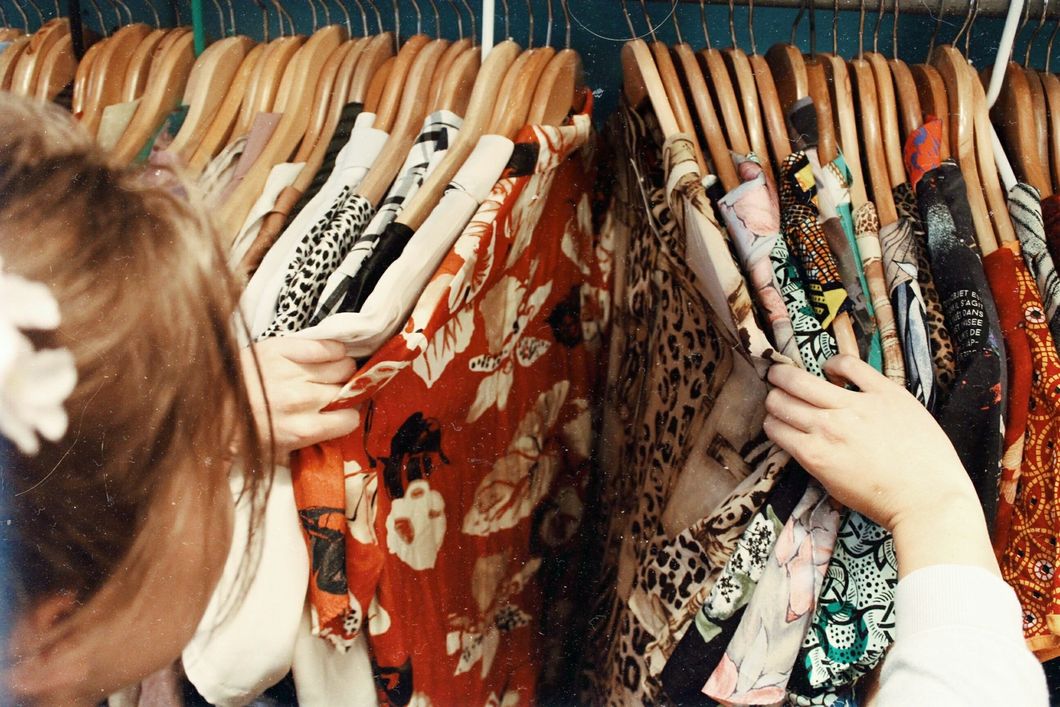In the past year or so, thrifting has become a big trend. For years, it was hard to get people into even going thrift shopping; who would want to buy someone's old clothes? Then, like how a lot of trends happen, Youtubers and influencers began to promote the thrifting life.
Many of these Youtubers explain their reasoning by saying it's more sustainable to thrift shop; thrifting allows you to limit your fast fashion consumption while still finding good clothing. Lots of Youtubers show all of the high-end or expensive brands that you can find at the thrift shop. These influencers changed the conversation on thrifting and more and more people began to take part in thrifting.
Yet, many don't really the problems that the new fad of thrifting is causing problems. Yes, thrifting is a great way to cut down how much fast fashion you buy, but there's some ways it isn't helping.
Think about all of the thrift haul videos you've seen. From your favorite thrifting Youtubers to the ones just getting their start; look at all of the come thrift with me videos where they brag about spending $200 dollars at Goodwill and having multiple carts filled with clothing.
Mass buying thrifted items isn't much better environmentally in the long run. Many will show off how little they pay for an item or their massive haul, but no one thinks of the consequences behind it. With thrifting becoming a new trend and a more popular way of shopping, this causes more of a demand for it. This causes thrift stores to start charging more. Thrifting is often a choice for many shoppers as they choose to thrift for a cheaper deal, but for many people it's their only option. If you are buying hauls after hauls you are taking away good items from low-income families who have to shop at thrift stores to keep their families clothed. Mass consumption whether it's fast fashion or thrifted is never a good thing.
There are other bad things coming out of thrifted youtube content. Many sized 0 or so girls will buy bigger/plus size clothing and DIYing them to fit , taking away the already slim options for plus size girls to thrift. Or what about the ones that thrift name brands for cheap just to sell them for more money on Depop?
How 'sustainable' are these creators? When states entered quarantine, this left many struggles for Youtubers and having to adjust the production of their content. I don't want to call out any specific people, but think of your favorite thrifting Youtubers and how did they handle their adjustment into quarantine. I saw quite a few who stayed very sustainable and bought from online thrifting platforms to continue creating their content. Yet, I also saw some people change theirs a bit.
I saw many known 'thrift' youtubers immediately turn to sponsorships from fast fashion companies and receive hauls from them. I'm not saying it's bad to ever purchase from these brands, but when you are receiving tons and tons of free clothing that contributes to mass consumption, yet you are known for being a sustainable shopper, what kind of message are you putting out?
Some of these influencers were even called out for some of the brands they worked with being racist, or treated their employees horribly, or underpaying employees, and so on. I think all of them have apologized and won't work with the brand no longer, but to me, how true will that be?
Why instead of working for these brands, didn't they reach out to inclusive, small owned businesses that need help more than ever right now? What about promoting sustainable brands that make everything by order?
It makes me want to question their motives. Are you actually promoting sustainable shopping or do you just like to get a mass amount of clothes for cheap and are willing to drop your 'sustainable' brand if it's convenient for you.
I'm not saying this is a call to stop thrifting. Thrifting is a sustainable way to shop that is much better environmentally than buying into fast fashion ever will be. I just think we need to realize our motives behind these things, and if we are truly trying to shop more sustainably than continue to put that into affect.






















